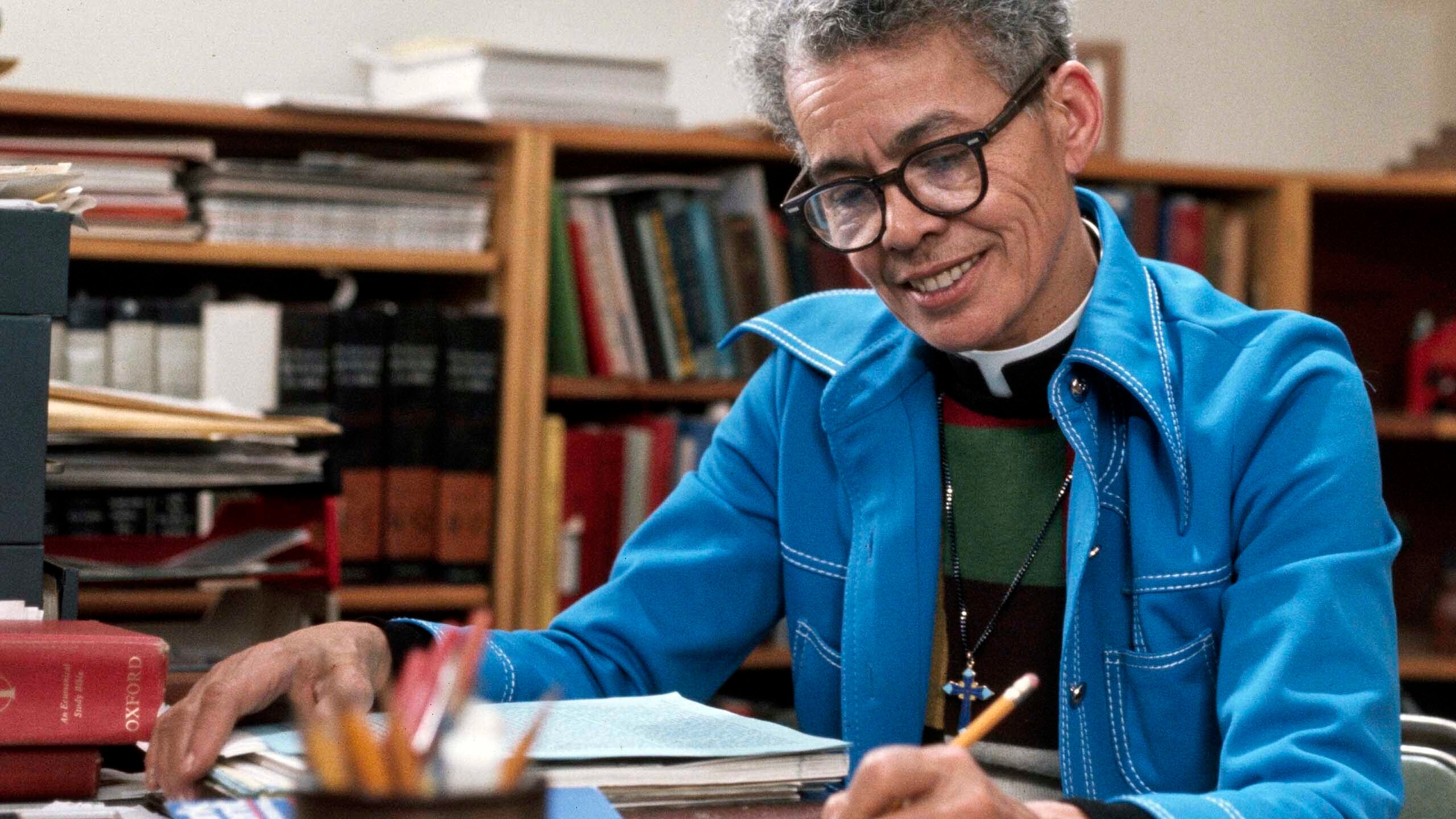‘RBG’ directors shed light on another legal trailblazer
Directors Julie Cohen and Betsy West first came across the name Pauli Murray while working on their Oscar-nominated documentary “RBG."

Your support helps us to tell the story
From reproductive rights to climate change to Big Tech, The Independent is on the ground when the story is developing. Whether it's investigating the financials of Elon Musk's pro-Trump PAC or producing our latest documentary, 'The A Word', which shines a light on the American women fighting for reproductive rights, we know how important it is to parse out the facts from the messaging.
At such a critical moment in US history, we need reporters on the ground. Your donation allows us to keep sending journalists to speak to both sides of the story.
The Independent is trusted by Americans across the entire political spectrum. And unlike many other quality news outlets, we choose not to lock Americans out of our reporting and analysis with paywalls. We believe quality journalism should be available to everyone, paid for by those who can afford it.
Your support makes all the difference.Directors Julie Cohen and Betsy West first came across the name Pauli Murray while working on their Oscar-nominated documentary “RBG.” Ruth Bader Ginsburg had written “Pauli Murray” on the front cover of her first women’s rights brief before the Supreme Court to give credit for the idea she'd be arguing. Murray had, in 1965, written a law journal article positing that the 14th Amendment could be used to protect gender equality It would be a foundational idea for Ginsburg. And it was just the tip of the iceberg of Murray's contributions.
“We did some research and we went, oh, my goodness, it’s not just women’s rights,” West said. “There’s so much more here.”
Murray, who was Black and gender fluid, was in fact a pivotal figure in shaping litigation and thinking around gender and racial equality, years before the civil rights or women’s movements. Cohen and West track the extraordinary life of this little-known trailblazer in the documentary “ My Name is Pauli Murray,” which premieres at the Sundance Film Festival Sunday night.
Cohen and West were inspired to dig into Murray's life while out on the road with “RBG,” speaking to audiences who were hungry to hear stories about unsung heroes who had fought for equality and social justice. They suspected Murray wouldn’t necessarily be an easy subject for a documentary, though, since Murray died in 1985 at age 74. But then they found a five-and-a-half-hour audio interview with Murray and suddenly it seemed possible.
“Luckily, Pauli, who had many setbacks and difficulties in her life, had a sense of her own historical importance and saved everything letters, diaries, interviews done later on in life,” West said.
Murray requested that the material go to the Schlesinger Library in Cambridge, Massachusetts, when they died. And it was not insignificant: Murray's own archives took up 141 boxes. Murray had also written an autobiography and recorded an audio tape while reading it aloud for a friend who was blind. And there were a number of interviews that they found when Murray was ordained in 1977, in addition to scholarly books about Murray's life like Rosalind Rosenberg’s 2017 book “Jane Crow: The Life of Pauli Murray.”
“It’s not only the women’s rights work that Pauli did, it’s major contributions to civil rights, to ideas that ended up in the Brown vs. Board of Education case,” Cohen said. “There’s a whole slew of ways Pauli was way ahead of the times from getting arrested for sitting in the quote unquote wrong section of the bus in 1940, 15 years before Rosa Parks, from organizing a sit-in to protest segregated lunch counters in Washington, D.C., in 1943, 17 years before the more well-known Woolworth’s lunch counter sit-in, to being one of the founders for the National Organization for Women.”
Murray was also a published poet, a writer, a labor organizer and a tenured professor at Brandeis before making the decision to go to seminary school. Murray's friends included Eleanor Roosevelt, Langston Hughes, James Baldwin and Betty Freidan. So, why isn’t Murray better known? Well, West said, that’s complicated.
“Part of it was that Pauli was ahead of everybody,” West said. “She was part of doing the right thing and thinking groundbreaking thoughts and then kind of moving on to the next interesting, challenging idea.”
Both said the time is right for a film like this when we’re all reexamining our own history and reconsidering whose stories have been told and whose have been overlooked.
“The general public doesn’t understand the profound impact Pauli had on our world,” West said.
___
Follow AP Film Writer Lindsey Bahr on Twitter: www.twitter.com/ldbahr